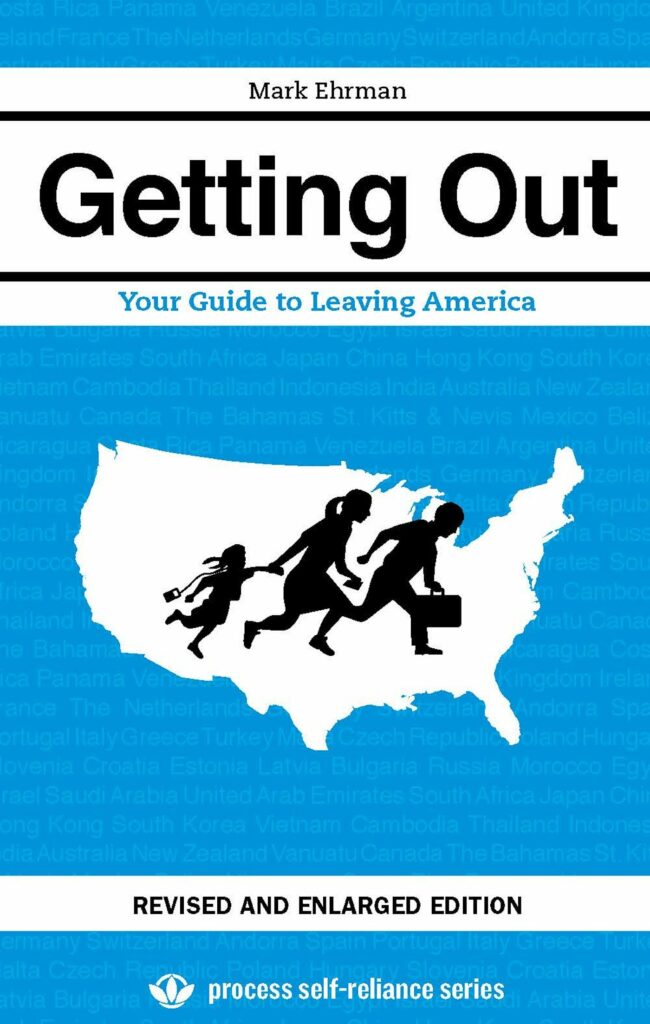Note: In 2021, I’m writing a new blog post every weekend or so. This is number 35 of 52. It’s Labor Day Weekend, so a Monday entry still counts! I skipped weeks 33 and 34 due to finishing up an intensive six-week course to (successfully!) become CELTA certified in teaching English to speakers of other languages.
Note: I have a post in progress about Afghanistan and radical mental health in the United States, connecting the two by discussing cognitive dissonance. As a result of my recent and current workload and that entry’s length, I haven’t been able to complete it, and now need to put together something simpler (this post) instead. I’ll get the Afghanistan and mental health writing up eventually, but in the meantime, I urge you to read the timely story of Cindi Fisher and her struggle to free her son Siddharta from Washington state’s notorious Western State Hospital. See here, here, here, and here.

I grew up in Fort Worth, Texas and moved to Seattle in 2016. That relocation was one of the best things for my life. Over the years, others from afar have encouraged me to migrate. Without their stimuli and the Internet, I’d have stayed in the Lone Star State, never participating in the Hearing Voices Network, never overcoming myriad challenges and increasing my autonomy, such as upping my cooking skill, substitute teaching for multi-month assignments in a huge city with a stressful crack-of-dawn commute, and dealing with painful social/emotional obstacles while interacting/transacting with people of wildly different demographics in a major urban environment. I’d have simply stayed a native Texan, brought up by prep school to belong to academia, isolated and not knowing it, locked in tunnel vision and praising the tunnel.
As I near six full years in Seattle, the time has come to move again — moreover, the time has come to leave the United States, even to get citizenship elsewhere someday. It’s a strange thing to do as a USian. In this country, no matter how much catastrophic medical debt piles up, no matter how many schools get shot up, no matter how often unemployment benefits cruelly expire, making a very specific plan for emigrating — as opposed to Just move to Canada! fantasies — is something you simply don’t hear about. Who does that? USians feel they’re already the most important country: not only the pro-Trump or neocon reactionaries, but also the faux rebels, who insist that if there’s a problem on the world stage, the US must always be the country most at fault. In other words, whether USians love the country or hate it, both agree that, regardless of topic, no other country can possibly be as important. Ever. In their eyes, history has come to an end. But most of the planet’s people live elsewhere, along with their changing cultures, changing languages, and the rest. It’s time to experience that; time for my own history to start a new chapter, while it’s still legal to leave.
But why, and how? On computer-y activist-y twitter, there are occasionally declamations by USians of how persecuted they are, and how special they are, and how they’ll soon leave the country for the better pastures they so richly deserve as rugged swashbuckling heroes and so forth. You’ll find that while I see terrifying political problems here too, my perspective is quite different! I see that for USians, who as a whole including me are to some extent quite tranquilized and emotionally + intellectually stunted (see arguments below), the idea of emigrating generally feels anxiety-producing, even downright scary — just try to talk someone here into renewing their passport, for instance. So I’ve decided to document my strange journey on my blog, full of specifics so maybe someone else will be able to figure out their own path to achieving the same thing someday.
This post is structured into why and how: First two little reasons why to emigrate, next two big reasons why, and finally two hows: a discussion of destinations I’m looking at, and then a discussion of practical steps I’m currently taking. Pertinent music before getting underway:
Little reason for leaving 1 of 2: across-the-board life improvement
In summer 2019, shortly before COVID-19 showed up, I visited Victoria BC (and a little of Vancouver) alone, and later wrote blog posts about it. One thing I discussed is how moving to a place that’s better or worse in whichever ways can dramatically improve or worsen your life across the board, as opposed to the individualization of social problems, also known as the fundamental attribution error. Or more plainly, as @debihope put it in 2010: “Before you diagnose yourself with depression or low self esteem, first make sure you are not, in fact, just surrounded by assholes.” Or, I’ll add, smog, sprawl, and so on. Imagine a bunch of variables:
a: safety of air (lack of air pollution)
b: savings on cost of living (lower prices and so on)
c: rarity of mass shootings
d: education level of the population
e: prosocial or antisocial behavior of the population
And whichever additional variables.
Then imagine each location as a combination of those variables. Fort Worth is the sum of its ratings for air safety, cost of living, frequency of mass shootings, education level, social or antisocial behavior patterns, etc. Seattle is the sum of its ratings for the same variables. Victoria, Vancouver, and more, identical. This is all very straightforward and logical; it might seem strange to USians only because every day the corporate propaganda is screaming that we’re the best, that evidence is what nerdy losers consider, and that problems are almost always congenital rather than almost always environmental (even one’s bodily host, full of microorganisms, can be considered part of your mind or soul’s environment, as this thought-provoking book discusses).

So that’s why moving to a better place can improve your life across the board, but even moving to a place with a lower sum rating can be an improvement in that it can strengthen a person if they’re up to the challenge — and the lower-sum place might have hidden gem aspects to it as well.
Little reason for leaving 2 of 2: recent news revealing the United States as a sinkhole
“It’s really heartbreaking to see children intubated by COVID,” a Texas pediatrician working in hospitals said last week, and the country has just surpassed 2/3 million novel coronavirus deaths with over 160,000 new cases daily largely due to the Delta mutation, but all the same, in southwest Washington state on Friday September 3, the fascist Proud Boys, all-male enforcers for Trump reminscent of Hitler’s Youth, were riled up by false social media posts by another far right group, Patriot Prayer, that wrongly claimed a student faced arrest for not masking. Skyview High School, Alki Middle School, and Chinook Elementary all locked down as Proud Boys tried to gain entry to school grounds. Teachers and faculty guarded doors to keep the Proud Boys out as school security addressed them (I don’t know the details of what exactly school security did). Among the work I do is teaching, including in secondary schools, and fighting off Proud Boys is not really how I want to spend my time as a teacher, a factor in my emigration goal. The eight-second video below (source) is from outside Skyview High School on Friday.
Saturday, September 4, 50+ armed Proud Boys were on the hunt in Olympia, the Washington state capital. Gunshots were fired (I’m not sure of the specifics), and a female independent journalist, Alissa Azar, was assaulted by the Proud Boys. Details are still emerging.
Labor Day Weekend’s not over yet; there may well be more craziness from the Proud Boys forthcoming in the Pacific Northwest.

Turning to Texas, a pro-snitching, anti-reproductive rights law — the most restrictive in the country — went into effect there on Wednesday September 1 after the Supreme Court upheld it in a 5-4 “shadow docket” ruling. The law bans abortions once cardiac activity can be detected in the fetus, usually six weeks into pregnancy, typically counting from the first day of the last menstrual period (which might not be tracked or trackable, adding confusion and difficulty into the time equation). The Texas law makes no exceptions for rape or incest and relies on private individuals to enforce it; as the New York Times explains, it “deputizes private citizens to sue anyone who performs an abortion or ‘aids and abets’ a procedure. Plaintiffs who have no connection to the patient or the clinic may sue and recover legal fees, as well as $10,000 if they win.” Snitches and bounty hunters. I wasn’t the inseminator, but as a quasi-supporter quasi-bodyguard against protestors decades ago, I accompanied a pregnant friend to a clinic for her abortion arrangements; such activity would now be “aiding and abetting.” As this five-minute Pussy Riot song “Hangerz” explains, “fundamentalist abortion-bans are about hijacking control and ownership of women’s bodies,” though some of the reactionary foot soldiers fighting for such bans may not perceive that frightening truth themselves.
What’s the “shadow docket” component of the Supreme Court ruling? The shadow docket is contrasted with the Supreme Court’s “merits docket.” But wait, what’s a docket?
The docket is the official schedule of proceedings before a court. When I covered multiple federal sentencings of hacktivist/transparency movement defendants (such as whistleblower Reality Winner’s), I’d sign into PACER, the electronic system for accessing federal court documents, and take a look at the docket to see what time the hearing began and in which courtroom. The docket listed not only that info about the sentencing hearing, but also information about and links to each pleading (a written statement a party puts before a court) and much more, which I would read and write about journalistically. “Docket” more generally refers to the workload before a court, as in “the court has fifty zillion cases pending on its docket.”
So that’s docket — how about the merits docket? The Supreme Court’s merits docket is the 60 to 70 or so cases the robed, priestly, and surely heavily surveilled justices will consider each term, hearing oral arguments from lawyers and pondering the pleadings, to make rulings supposedly on the merits. The merits docket cases are usually scrutinized by scholars, sometimes broadcast by media, and so forth, hopefully aiming for an ideal of transparency, because thankfully some refuse to lose their curiosity about what the ruling class is up to.
The shadow docket, on the other hand, is a catch-all term for Supreme Court rulings that, with some variation, are typically accompanied by no oral arguments from lawyers, no reasoning from judges, no identification of which justices voted what, and are released with unpredictable timing. That unpredictable timing makes informing the public about them difficult. For example, not of the Supreme Court shadow docket but of something similar, in Reality Winner’s case, her exceptionally restrictive plea agreement — remember, her leak was a huge component in the story of how the United States was smashed (partly) by Russia, sometimes called the battering ram of China in this global transition from the British Empire to the Chinese one, and thus, her leak helped decloak Putin’s ally Trump, so her punishment has been unusually severe — wasn’t filed until the day of her sentencing, which made reporting on her exceptionally restrictive conditions impossible for the many members of the media attending the hearing: we were given no time to read the plea agreement closely before the news cycle moved on. The Supreme Court’s shadow docket is likewise difficult for scholars and journalists to review. There’s no time for amicus briefs or activists to arrange protests (or sabotage!).
Though the term shadow docket was coined in 2015, something of a shadow docket has existed ever since the Supreme Court has. For a long time, shadow docket rulings were primarily minor, anodyne matters, like granting a side an additional two weeks to file a motion because the top lawyer came down with pneumonia. Over the past four years — during both the obviously awful Trump and wrongly beloved Biden administrations — there’s been a dramatic uptick in shadow docket rulings from the Supreme Court, another sign of the law vanishing. Shadow docket rulings are used now even for controversial cases, such as the new Texas abortion law. (Read more about the recent use of the shadow docket, a major loss for accountability and transparency, in this February 2021 testimony to Congress.)
A two-minute Anonymous video uploaded Friday September 3 points out that the Texas tactic of circumventing the federal protection of reproductive rights by shifting anti-abortion enforcement from the state government to private individuals could be expanded to circumvent any federal protection, such that private individuals are allowed to enforce any new state law regardless of what federal law might say on the matter. Do you realize what an end-times move that is? No more constitutional protections from federal law; your neighbors enforce the local law, to collect bounties. The Anonymous video also announces Operation Jane, named after the Chicago underground abortion service started in 1969, to either take down online systems for snitching/bounty-hunting on Texas women getting abortions, or to poison the data collection by flooding the online systems with garbage information. Indeed, a website seeking snitch reports of people violating the new Texas law has already been spammed thanks to a viral digital protest, including one programmer creating a shortcut for iPhone users to easily submit worthless data repeatedly.
I could offer examples of the sinkhole United States forever, but let’s look at just a few things more, quickly.
Remember the coup attempt on January 6? “A failed coup is practice for a successful coup,” Yale historian of fascism Timothy Snyder said this summer, referring to history and the very possible, perhaps even likely, scenario of Trump returning in 2022 or 2024, maybe by force. I recently came across a two-part interview with Harry Dunn, a Capitol Police officer who’s given harrowing firsthand accounts of the coup attempt. The interview from July — part one and part two — is really worth listening to, because though our feelings on cops may be closer to this, Dunn seems a very straight-up dude, easy to empathize with, and his retelling of the insurrection is very expressive and evocative. (The Dworkin Report also interviewed lawyer Alison Grinter last month regarding Reality Winner’s commutation and pardon efforts.)
Remember, in this connection, the words of multiple Holocaust survivors in 2019 (Rene Lichtman, Ruth Bloch, Bernard Marks): ICE is equivalent to the Gestapo, and their current ‘detention centers’ really are concentration camps where genocidaires crush minorities. Replace “the United States” in your head with “Nazi Germany” and ask yourself if living in such a place makes sense. Even if privileged USians think themselves exempt from such matters, recall that in May 2020, during Black Lives Matter protests sparked by George Floyd’s death, the National Guard in Minneapolis swept affluent streets, yelled Light ’em up! and shot paint canisters at non-minorities for the “crime” of standing on their porches, as in this 20-second video (source) that the mainstream media later followed up on:
Big reason for leaving 1 of 2: Unreachable USians and their counterarguments
The above establishes there’s no way for USians to opt-out of having the increasing fascism arrive on their own doorsteps. But plenty of people have legit reasons for staying in the country. Maybe they’re the sole caregiver for a dear dying relative. Maybe they’re dedicated to a project such as cleaning up the Duwamish River by Seattle. I even read a curious story about a monk in his fifties, a psychiatric survivor, who, protesting the rush of technology, took a “vow of stability” never to ride in a vehicle or leave his city (save rarely and on foot), though the story of his (nonsexual) relationship with a 23-year-old woman is a bit odd; in the U.S., twenty-three is typically not the age to take such a vow, and the story treats her as his mere sidekick. Anyway, there are all sorts of understandable reasons a person might decide not to leave the United States. And other countries aren’t automatically perfect — for good or ill, there are coup attempts and actual coups all over the place presently: see yesterday in Guinea on September 5, or the likely Steve Bannon-facilitated one in Brazil tomorrow on September 7 for fascist Trump ally Jair Bolsonaro. Whatever the case, each person’s life is their own to find their own path.
Still, there are common fallacious arguments against emigrating that I’ve heard repeatedly from USians and would like to address. These arguments arise in USian conversation when I bring up my goal of emigrating. The arguments make me feel like the majority of USians are unreachable on this topic, though judging from the programmer video above, the kids are all right; maybe I’m just getting old.
The most frequent anti-emigrating argument I hear in the United States is that it’s only a possibility for those with financial privilege. To be fair, this is not my best subject; nevertheless, there are certain awkward truths to be said. Since there are many who have willfully changed countries — including leaving the U.S. — while in poverty, the argument that emigration is only for the privileged is untrue, and speaks more to typical USian myopia. I don’t have the link handy, but I remember reading on r/IWantOut, a subreddit for emigration advice, of a USian in their late teens who sold everything and took a huge risk to just drop themselves into an Eastern European country, I think, and figure it out on the go. Lots of r/IWantOut posts share such stories. There are also many easy-to-find youtube videos of USians telling their stories of how they emigrated while similarly in poverty. Counterexamples, boom! With only $1000-$2000 USD in savings, which she calls a “pretty significant” amount, the woman in the video below moved from Chicago to cheaper Madrid to work as a teacher assistant, receiving a meager income (about $1200 USD per month). “It was one of the most amazing years of my life,” she says. “I’d recommend the experience to everyone.”
Volunteering and hanging out with US activists has taught me that many of them are simply pretending to be poor (even to themselves); maybe they don’t have a lot of cash daily, but they come from highly professional families who deliver money to them regularly, or would in emergencies or if asked. “Emigrating is a privilege” often means rather “I don’t want to have a confrontational conversation with my family/friends on this topic” or “I must follow a bizarre Kantian imperative to never lie, so when my family asks, I can’t tell them I sold my guitar to get $300 for something they approve of, when I actually sold it to pay an Education Credential Assessment fee they don’t approve of; not lying to my family is more important than my life and dreams going permanently down the drain.” People, especially women, are constantly shamed for being bold and taking risks, and socially ‘rewarded’ — She is just so sweet! — for staying in servitude and remaining meek. So the “money privilege” arguments about emigrating are actually about those paralyzing emotions under the surface, I think, not about actual budget questions.
Further, as I experienced myself, those from upper class families in the U.S. are very often lacking in skills (paid caregivers did the domestic tasks when they grew up; parents or paid accountants did their taxes and paperwork; and so on). This sort of thing hits Reddit regularly, such as these stories of nightmare roommates not doing their dishes ever. It’s pretty inhibiting to grow up in a U.S. golden cage, especially since such families tend to endorse conventional psychiatry. Pedosadist Jeffrey Epstein arranged for psychiatrists to give his victims Lithium and Xanax for their tranquilizing/sedating effect; psychopharmaceuticals are a weapon of control that dull the moxie required to emigrate.

To counter these various discouragements, including the shaming, ressentiment-style crab mentality around emigration — if you can emigrate, it must be because you are bad since you have money, whereas I can’t do it, because I am good since I don’t have money — I’ve lately been thinking of inspirational friends and reading inspirational books. One friend I know simply refuses to pay her student debt (my heroine!). I also just finished reading the autobiography of guitarist, philosopher, and Paganini/Liszt-style showoff Yngwie Malmsteen (who could really use some intervallic additions to his playing such as fourths, sixths, sevenths, ninths, elevenths). In Relentless, Malmsteen writes about riding his motorcycle up and down the stairs of his Swedish high school as a teen. I was a bit like that as a teen, too. In Texas, such energy often means (at least for white kids in prep schools) getting psychiatrized, but for him in Sweden, he got away with it, then later, upon receiving an offer to play in a Los Angeles band, flew across the planet for the first time to this city he’d never heard of (pre-Internet days), bringing with him nothing but his guitar case with an extra pair of jeans crammed inside. He ended up living in a run-down warehouse for a while in a violent neighborhood, playing for cheesy Steeler and getting his bearings; it got him to where he needed to go next. And only yesterday, a world-traveller friend recommended to me Mark Ehrman’s book Getting Out: Your Guide to Leaving America, which I haven’t read yet, but it looks great.

Even disability may not be an insurmountable obstacle to leaving. People who have been intensely psychiatrized may legitimately worry about family/friends calling the police and having them hospitalized if their plan to leave the country seems grandiose or otherwise insane. Breaking things down into plausible step-by-steps may help persuade policers, or another option is simply outwitting one’s opponents. It can be done. Witness the amazing book Bipolar 1 Disorder: How to Survive and Thrive by Molly McHugh, originally from the United States. Despite a history of manic psychosis, she slowly, after much trial and error, managed to get off her psychopharmaceuticals and travel the world with her son.
I had a creative writing teacher once who told the class he kept hearing explanations from us for why ideas put forth wouldn’t work; he then said, why not give explanations why they will work?
The other counterargument I hear frequently is that, in the face of collapsing supply chains and rising fascism, a USian should stay here and fight. I hear it so often that I wonder where the phrase originates; USians never say they want to remain here and fight or stay here and battle. It’s always stay here and fight. The collocation appears in translations of the Iliad and the stage play Death of a Salesman. Vivid, monosyllabic Anglo-Saxon words like “stay” and “fight” are usually preferred by English speakers over Latinate clunkers like “remain” and “battle.” But I still wonder if there’s something more to the phrase’s frequency.
Anyway, let’s say I agree to remain here and bat — I mean, stay here and fight. What’s step one? The very first page of Sun Tzu’s millennia-old book The Art of War, studied by US generals, the KGB, and the Vietcong alike, says warriors must “determine the conditions obtaining in the field.” He asks fighters to consider, among other questions, “Which army is stronger?” and “On which side is discipline most rigorously enforced?” I’ve never heard a USian, who insists we must stay here and fight, address such questions of Sun Tzu’s. At a glance, the Pentagon is stronger than antifa, since antifa lacks aircraft carriers, fighter jets, tanks, and so on. USians generally lack discipline, too, since every day almost all down corporate soda and other junk food along with countless hours of corporate entertainment (eating healthy is disciplining and strengthening).

In short, if this is a US activist battle, where are our battle plans? Were I to spit the above paragraph at a stay-here-and-fight advocate, they might say, as if dismissing the entire subject, “antifa is morally stronger,” but Sun Tzu lists moral force as just one factor among others. Verily verily, a serious fight requires serious observation, planning, and effort. My observation is, in terms of a US football metaphor, the idealists and radicals in the United States are way behind in the fourth quarter, too far behind to rack up enough points on the scoreboard to win against supply chain collapse and fascism. Enough evidence of that for me is that Seattle activists I know refuse to factually assess the battlefield in the first place and rely on subtly insulting each other into agreeing that everything will be fine and those who disagree are simply being negative or uncool.
Lots of antifa and other activists in the United States are working hard, as social media sometimes shows, and I don’t mean to denigrate that effort. Maybe I just have a bad taste in my mouth from particular experiences. But there’s definitely an unacknowledged deer-in-the-headlights thing going on with many of us here. And that naive attitude is part and parcel of how USians typically view life. In this amazing article for the New York Times, novelist Brian Morton writes:
Gandhi, Mandela — it’s easy to see why their words and ideas have been massaged into gauzy slogans. They were inspirational figures, dreamers of beautiful dreams. But what goes missing in the slogans is that they were also sober, steely men. Each of them knew that thoroughgoing change, whether personal or social, involves humility and sacrifice, and that the effort to change oneself or the world always exacts a price. But ours is an era in which it’s believed that we can reinvent ourselves whenever we choose. So we recast the wisdom of the great thinkers in the shape of our illusions. Shorn of their complexities, their politics, their grasp of the sheer arduousness of change, they stand before us now. They are shiny from their makeovers, they are fabulous and gorgeous, and they want us to know that we can have it all.
Try explaining to the Proud Boys or the National Guard that antifa will win simply because your fabulous bumper sticker slogan says so — you may find their disagreeing force overpowering.
One last thing. We know reactionaries, whether of the neocon or Trumper flavor, believe all must be made equal: equally subject to their rule that Only he with enough moneytokens deserves to eat; all others must starve or hope for shameful charity. The US left also tends to believe all must be equal. When I tried to explain to a Seattle leftist in person that whereas in the World War II era, the country incentivized very cerebral people (physicists, etc.) to immigrate here, now it’s the opposite, it’s what’s called a “brain drain” where some of the country’s brightest, seeing the sinkhole, are fleeing to other countries where their abilities will be welcomed and rewarded. That has long-term negative consequences for the United States, y’know? But the USian I was explaining this to got mad at me: they said it was offensive to suggest that some people are smarter in some areas than others: the phrase “brain drain” alone was offensive. So it’d be hard to convince such a person to divide up an antifa army to put some on intelligence work (researching opponents’ street addresses and supply chains), others on street brawls, and some on both, because on the US left, everyone has to be as equal as the rightwingers insist everyone must be under the dollar sign. With that differences-denying kind of mentality widespread in the country, nobody can honestly evaluate the conditions on the field and win.

Big reason for leaving 2 of 2: growth through adventure
All the news, arguments, counterarguments, and counter-counterarguments can stack up like a gloomy list of gloomy factoids, some of them debatable or personal, but they ultimately matter little in comparison with my biggest reason for aiming to leave the United States and get citizenship elsewhere. That’s simply the drive to embark on a challenging adventure, to get out of my comfort zone, to stop metaphorically hiding under the bed, and grow/develop as a person. I’ve written about that in many places on my blog, and will in the future, so I won’t talk about it here much.
I will say, however, three things.
First, notice how many USians will downplay the importance of this cross-border adventure thing, yet play video games where they’re flying airships to new lands to have virtual adventures (or perhaps they’re reading or watching fiction with the same journeying tropes). So, it seems adventure, etc., is necessary in life, and hiding under the bed, perhaps as a good psychiatric patient, is a downward spiral that will be met with more pills and pats on the head from the authorities.
Second, psychologists have an interesting concept called flexibility of thought, or cognitive flexibility. Regardless of his brave youthful journey across the globe to Los Angeles, Yngwie Malmsteen nowadays continues to play the same tricks on guitar (c’mon, man, that trademark descending ostinato lick of yours? why not play it ascending at least once in your plentiful recordings? or try inspiration from a different classical musical genre such as impressionism?). Similarly, people everywhere keep hiding under the bed. This is a huge topic, but the idea is to have enough adaptibility to meet unfamiliar challenges. I’ve heard cutting away the safety net, having no Plan B, can really help, so that you devote all your time to your goal, but on the other hand, poor risk-assessment and foolhardiness don’t work, either. Just something I think about regarding emigration; I’m no expert. But I’ve long seen chest-pounding USians call themselves adults because they remuneratively serve corporations or their ancillaries on salary, yet be literally too terrifed to walk off a sidewalk or climb an enticing tree and sit in it. Hello, we’re losing our childhood birthright of curiosity and courage because of how we came to be ruled by Death Eaters.
Third, as USian leftists debate who is or isn’t privileged in this country, and typically prefer to hear the perspective of a union organizer down the street rather than indigenous people on the other side of the planet, the real tragedy is that USian comforts are provided by multinational corporations benefitting from destruction that turns people into refugees who must cross countries without any choice in the matter over whether they’re privileged or ready enough to leave their homes or not. USians seeing refugees on boats somehow still remain convinced they themselves are of a special, exceptional sort when it comes to emigration. Perhaps USians are different, at least in terms of our unadmitted social and emotional crippling…
Salvation destinations
Enough of the why. Now for how.
Initially USians tend to approach the topic of foreign destinations as a fantasy and actually enjoy talking about it — for pretend. The stressful details of renewing a passport or taking an IELTS test go out the window and everybody daydreams aloud about which country they’d go to and why.
I’m thinking about going to a country where I can gain citizenship, but that might not be a linear process. Some countries are very difficult to earn citizenship in, for instance many European countries. So I might have to go to Country B first, perhaps to improve at a required language or improve employment history, before going to Country C and getting citizenship there.
Let’s indulge the make-believe a little, yet spiced with facts. Here are my current preferences/thoughts. Bear in mind that different places within a country are, you know, different. In the service of brevity, the below kind of commits the Star Trek fallacy of one p̶l̶a̶n̶e̶t̶ country, one culture.
Canada: This would be ideal for me in many ways. In British Columbia at least, I could visit Seattle easily and easily research northeast Oregon in person for my fiction project, too. The electrical outlets are the same, the bioregion, at least in British Columbia, is the same — same trees, same weather. Hearing Voices Network chapters exist in Vancouver and Quebec City. Sort of an easy, beginner way to leave the United States. I’ve heard rumors of an upcoming lottery draw of permanent residency Express Entry applicants, maybe as soon as late September, requiring far fewer points than the usual threshold. You get points by, for instance, having post-secondary education credentials, higher IELTS scores, or good full-time employment history. Frequently in the United States nowadays, paid-jobs that actually take more or far more than 40 hours a week are classified on paperwork as part-time, but the USian emigrant can (try to) provide a letter from the employer that the work was tantamount to a full-time job; I’ve heard from a recently successful permanent residency applicant that such letters can often pass muster. Full-time job offers from Canadian employers especially boost points. However, Canada, or parts of Canada, can be expensive, so I’d probably have to pour a lot of time into teaching, which might be a good idea for a few years as I continue to improve my health via a compounding pharmacy. It’s also a decent place to be vegan, I’ve heard.

The Netherlands. Rising sea levels aside, the advantages of this country and its Amsterdam capital city are fairly well known, belonging to the European Union being just one of them. It’s also where the Hearing Voices Network began, so — pending further research — I assume it’s a great place to continue escaping conventional psychiatry’s grip. However, I’ve heard the Netherlands is expensive, or parts of it are, and to become a citizen, you have to learn Dutch, which to me looks like long strange strings of letters, but who knows, maybe I’d change my Dutch-ignorant mind someday. Most importantly, there’s a Dutch-American[USian] Friendship Treaty that eases the path for self-employed US entreprenuers to live in the Netherlands long term. I’ll look into that, see what the possibilities might be for various types of online writing and/or tutoring businesses. It’s another decent place to be vegan, I understand.
Spain. Another European Union member, and currently tied with Germany for the strongest passport in the world (measured in terms of mobility), at least on this index. A big draw for me would be improving my Spanish from slow and clunky to fast and fluent. I assume (haven’t checked yet) that Spanish skill is a requirement for citizenship. There’s of course a history of radical politics in Spain (and dictatorship). I’ve heard it’s an okay enough place to be vegan, at least in certain cities. And it just seems really cool to me. I like making big decisions based mostly on intuition — like James McMurtry’s we mostly go where we have to go — not laundry lists of pros and cons, and somehow Spain just feels really exciting. It’s a challenge to get EU citizenship, though…but things happen? Spain may be expensive, and there are no Hearing Voices Network chapters there on this international list, but perhaps by savvy emailing I could find a chapter that does exist and just isn’t on the radar yet.

México. The US news claims there are many problems in México, maybe to scare USians off (I mean really, who the hell wrote this? I didn’t write the “scary” subhead tho…that was an editor). But even if there are some bigly problems — like, say, Proud Boys trying to bust into schools? — well, like I suggested above, regardless of the across-the-board life improvement idea, there may be hidden gems where not expected, and life isn’t about greedily grabbing comfort anyway. Plus, despite a narco-state, amazing social movements (see also the Mexican Supreme Court ruling unanimously to decriminalize abortion on Tuesday September 7). I could improve my Spanish and live cheaply, perhaps teaching English language leaners for a while at an established school (there are some interesting job listings presently that I think I qualify for). My Spanish would skyrocket, and so would my employment history, as a teacher I mean (what about writing?). It’s a little hilarious that despite USian chest-thumping about the strength of its almighty trade economy, and the supposed evilness of so-called Mexican illegals heading north, it’s perhaps more practical for some college-educated USians to get certain good jobs by heading south. With such an improved employment history, I could maybe go to Europe later. Sadly, there’s no Mexican Hearing Voices Network chapter on the international list, but the same emailing savvy might turn something up. I don’t know what veganism is like in Mexico, but hey, with all the corn-based chips and tortillas, at least it would be easy to avoid gluten! I think…

Some country in South America, esp. Argentina or maybe Uruguay. The ideas here would be to improve my Spanish, see different stars and a vertically inverted moon, and live cheaply thanks to the US dollar. I have a friend who moved from the US to Argentina and supports herself fully with online content marketing writing and some tutoring side jobs, in the US a pretty hopeless way to try to support oneself longterm except maybe in rural areas, perhaps with nontraditional housing (e.g., an RV), though maybe I’m unaware. I briefly met a Seattleite, big into queer community stuff, who moved to progressive Uruguay and seems to be doing well there. I’ve heard it’s hard to be vegan in South America, and that I might find it hard to make friends there, though of course there’s a lot of variety on a whole continent! Unfortunately, the international list of Hearing Voices Network chapters lists not a single one there. However, the aforementioned Molly McHugh, author of Bipolar 1 Disorder: How to Survive and Thrive, also wrote a book about living in South America, so I’ll have to read it asap!
Those are the places I’m chiefly considering. Two more quick resources. Nomad List provides dossiers on various worldwide destinations, detailing things like cost of living or Internet connectivity quality, and I’ve heard it’s a pretty accurate site. Then, Totalism lists unusual places to live, especially for Europe. Hackerspaces, intentional communities, punk houses, artist spaces, zones like that. I might be wrong, but I imagine doing well in such money-saving environments, as opposed to one’s own apartment, would require cut-throat social skills.
Practical, specific, actual, real-life, not-kidding steps
Like I said at the start, it’s time for me to get going, to emigrate. Hell, in the hours and hours it took to write this post, I could have already become a European citizen! That’s a joke, but…
I decided to just throw myself into the process, to complete some practical, specific, actual, real-life, not-kidding steps even if I don’t have a full picture. Besides what you might expect — looking at job postings, sites like Nomad List, and playing with Canada’s Express Entry points estimator tool — there are three things I’m doing.
First, I’m digitizing, discarding, donating, or selling belongings. The fewer objects I have, the easier it is to move. It’s taking surprisingly long, maybe because the items are laden with emotional meaning. I’m having to grab records from Texas, too. I have about half of the records I want from Texas so far.
Second, I’m having my Bachelor of Arts degree evaluated for Canada. It’s called Educational Credential Assessment. Canada wants to ensure non-Canadian academic records are truly equivalent to Canadian degrees, so applicants have to pay a fee to one of five designated organizations to have them assess the transcripts. I went with World Education Services, because they’re apparently the fastest, and I’m hoping to get an Express Entry application in before the next draw for permanent residency, which as noted above, may come later this month.
Third, I’m taking the IELTS general exam on Thursday. That acronym stands for the International English Language Testing System, and it’s pronounced EYE-ults. Even if an applicant is a native English speaker who’s putting together the next installment of the Oxford English Dictionary, Canada (and some other countries) want the person tested for English proficiency. IELTS is the predominant way to go about it. The higher the IELTS score, the more immigration points when your application is considered. I just booked the exam two nights ago. Since the IELTS isn’t offered in Washington state, and not nearby any time extremely soon, I’m suddenly going to the border town of San Diego to take it. So, now I have to cram. Maybe very little study time was a bad idea; when I took the GRE test trying to get into grad school, I flunked the writing section, multiple times! (Probably a blessing in disguise, because I don’t want academia to steal from me the joy of working on my fiction, nonfiction, etc.)
Anyway, it’s time; and on Wednesday, it’s off to San Diego, the border town!
… Maybe while there, I’ll just head south, never to return. ;)



This blog post, On leaving the United States by Douglas Lucas, is licensed under a Creative Commons Attribution-NonCommercial-ShareAlike 4.0 International License (human-readable summary of license). The license is based on the work at this URL: https://douglaslucas.com/blog/2021/09/06/on-leaving-the-united-states/. You can view the full license (the legal code aka the legalese) here. For learning more about Creative Commons, I suggest reading this article and the Creative Commons Frequently Asked Questions. Seeking permissions beyond the scope of this license, or want to correspond with me about this post one on one? Email me: dal@riseup.net.

 Twitter:
Twitter:
Join the conversation